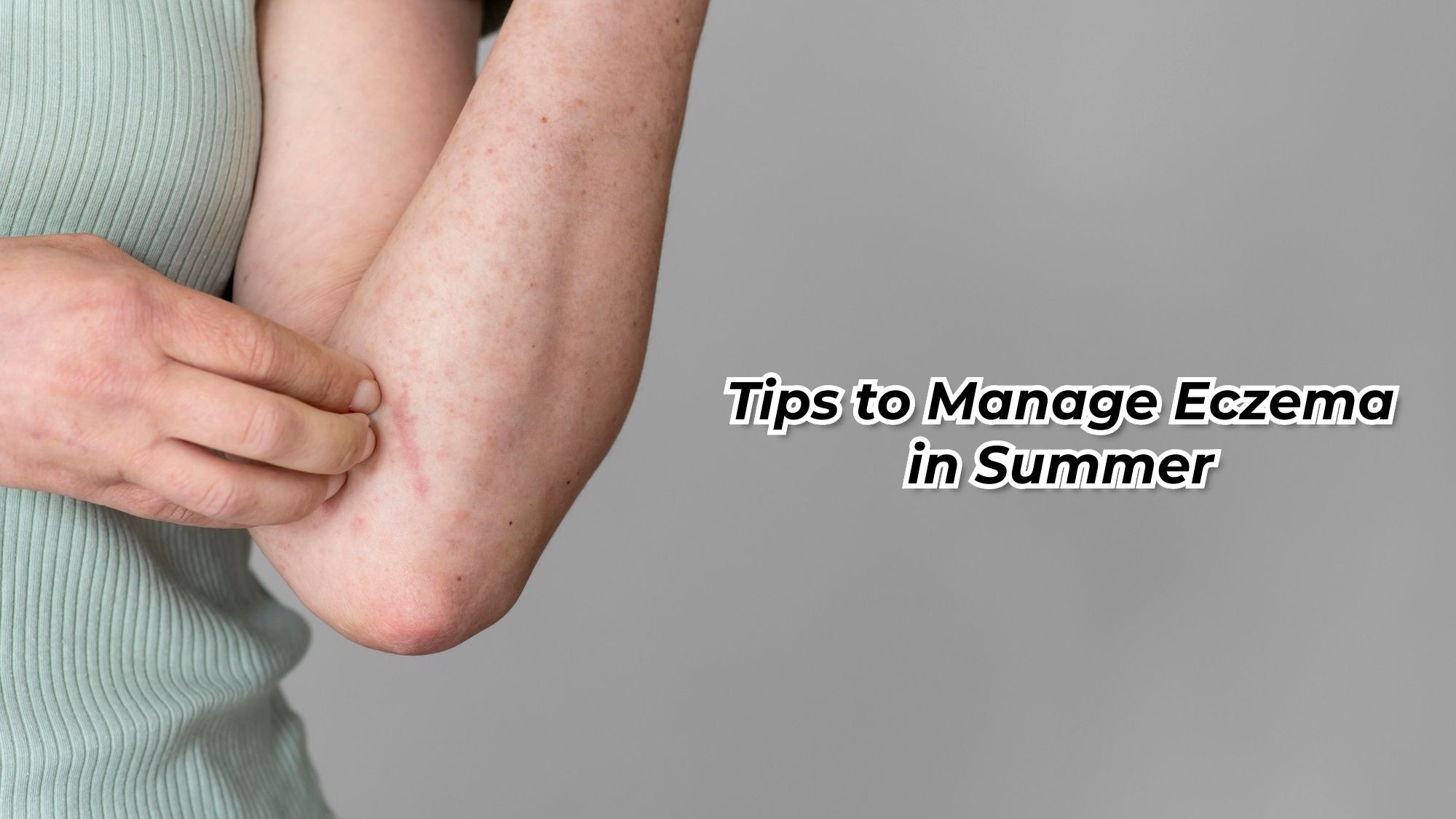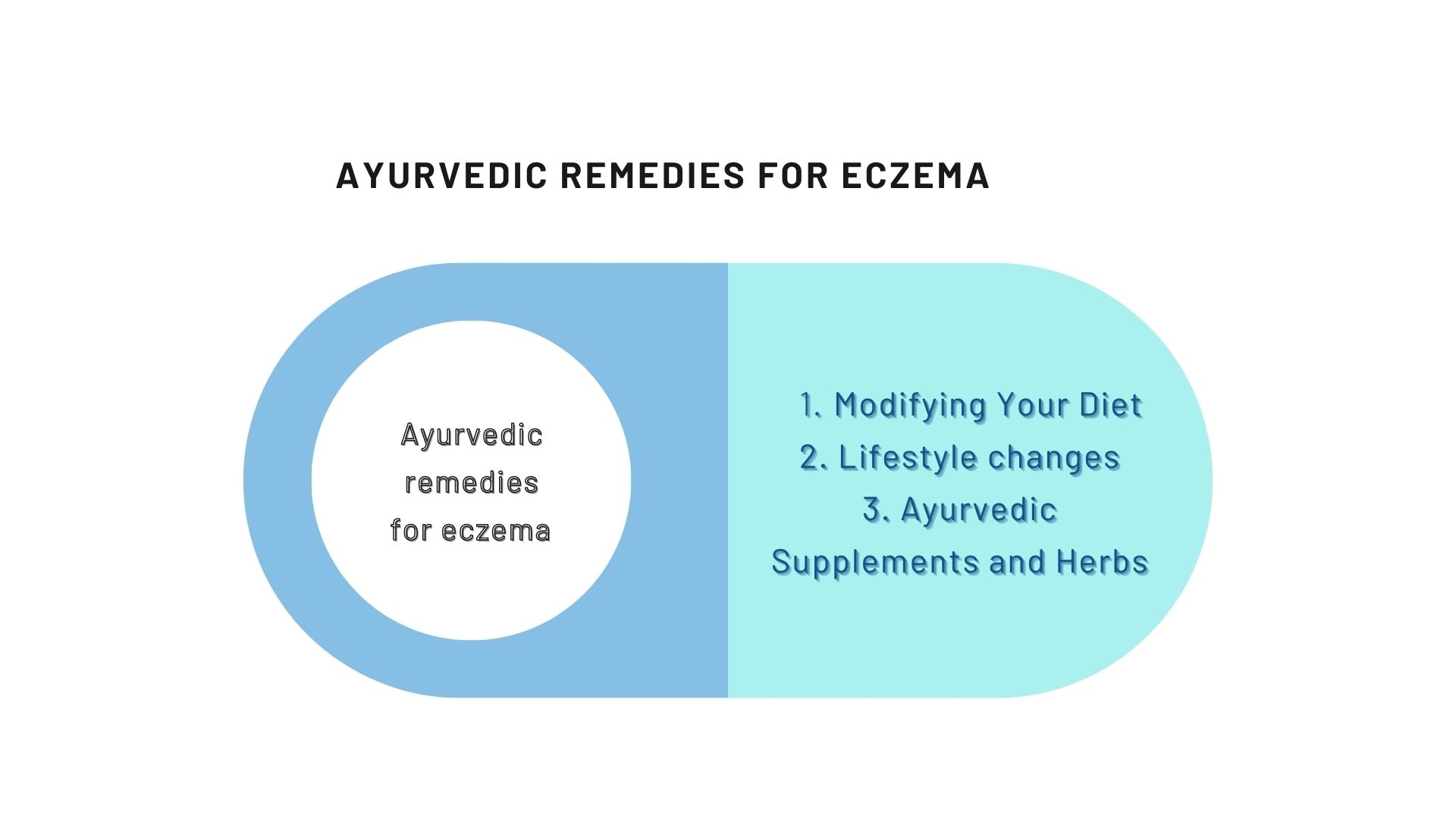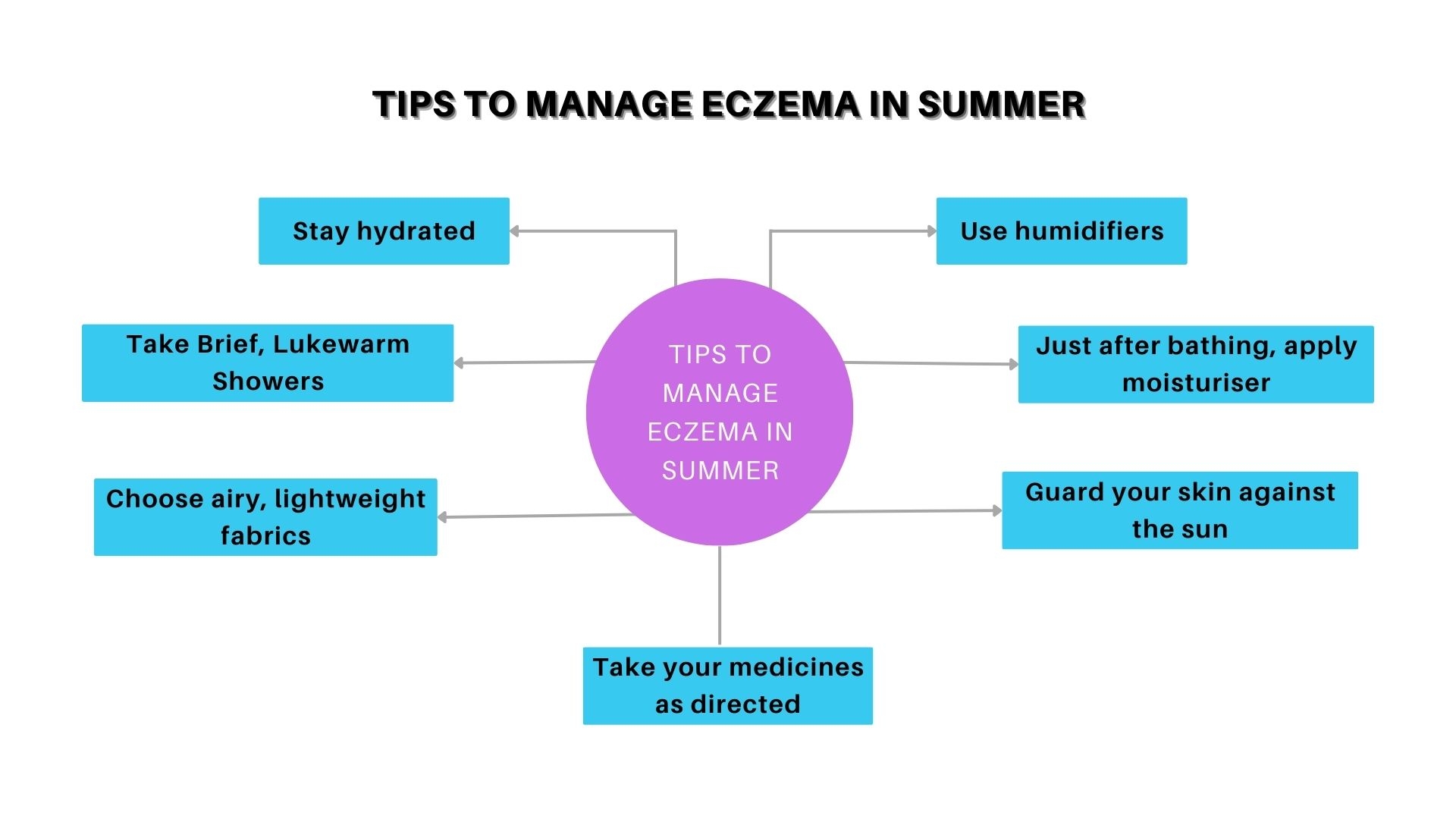
Those suffering from eczema may find the summer months, particularly trying. Extreme heat and humidity can aggravate already irritated skin, increasing the likelihood of breakouts and other skin conditions. But there is no reason why you can't spend the summer at ease and with reduced eczema symptoms despite the season's hardships. In this post, we'll look at some easy ways to control your eczema over the summer so you can enjoy the season without letting it get in the way of your comfort or health. Keep reading to discover what you can do about your eczema this summer, from your clothes to the air you breathe.
Eczema management tips in summer
Stay hydrated
If you suffer from eczema, remember to drink plenty of water. Be sure to stay hydrated all day long by drinking lots of water. Dehydrating liquids, such as coffee and alcohol, should be avoided. Use a moisturiser frequently if your skin gets dry and cracked. Try this if your skin feels dry or tight after a shower. Choose a moisturiser that won't cause irritation, and always perform a patch test before applying a new product all over your body.
Use humidifiers
A humidifier can help control eczema, especially during dry summer. It can increase humidity in the room, which in turn can help calm your skin and stop outbreaks. Humidifiers can breed mould and mildew if not cleaned frequently.
Take Brief, Lukewarm Showers
Don't take hot or cold showers or baths. Eczema sufferers should avoid taking showers or baths in hot water, as it might dry up their skin and aggravate their condition. To avoid this, shower for shorter amounts of time at a warmer temperature and use a gentle soap or body wash without added perfumes or additives. Following a refreshing shower, pat your skin dry with a soft towel and apply a moisturiser to help lock in the moisture.
Just after bathing, apply moisturiser
Those with eczema should always apply moisturiser to their skin when they get out of the shower. It will prevent your skin from drying out and becoming irritated by sealing in some moisture.
While deciding how to best hydrate your skin, keep the following in mind:
- You should pick a product that is formulated for your specific skin type. You should try to find a moisturiser without added fragrance if your skin is particularly sensitive.
- Make sure your skin is still damp before applying the moisturiser. Adding this will improve absorption.
- Dry spots, redness, and scaling should all be treated.
- Make sure to put on some hand cream! As eczema frequently appears on the hands, special attention should be paid to those areas.
Choose airy, lightweight fabrics
The summer months can be especially challenging for those who suffer from eczema. Flare-ups are more likely to occur in hot, humid conditions, and the extra sweat can aggravate itching caused by heat and humidity. Even so, you can take steps to control your eczema symptoms this summer.
Consider wearing clothing made from lightweight, breathable materials. Maintaining a cool, dry environment around your skin will assist in preventing inflammation. Whilst cotton and other natural fibres are always a safe bet, synthetic materials are also meant to keep you dry and shield you from the sun.
Guard your skin against the sun
Protecting your skin from the sun is crucial, which might aggravate eczema if you spend time outdoors. Cover as much of your skin as possible with lightweight, loose-fitting garments. Protect all bare skin with a broad-spectrum sunscreen with an SPF of at least 30. Reapply every two hours or more frequently if you're sweating heavily or in water. Get some shade when you can, especially when the sun is at its highest in the middle of the day. To keep your skin from becoming even more inflamed, you should avoid creams that are too abrasive.
Take your medicines as directed
Antihistamines, immunomodulators, and corticosteroids are just some treatments your doctor may recommend for severe eczema. Take these drugs exactly as directed by your doctor. Never use them more often or for longer than prescribed. Medication abuse can aggravate eczema symptoms and cause unwanted side effects.
Read to know: How Does Panchakarma Cleanse Your Body
Ayurvedic remedies for eczema

The goal of Ayurveda treatment for eczema is to bring vata, pitta, and kapha back into harmony. Alterations to one's diet, other lifestyle adjustments and the use of Ayurveda herbs and supplements can accomplish this. Ayurvedic practitioners believe that these methods can help prevent the condition from worsening in the summer.
Modifying Your Diet:
According to Ayurveda, the best way to nourish your body is with a diet rich in raw vegetables, unprocessed grains, and heart-healthy fats. Reducing eczema symptoms may also be aided by avoiding processed meals, dairy products, and foods heavy in sugar or salt.
Lifestyle changes:
Because stress can worsen eczema symptoms, it's crucial to learn how to deal with stressful situations. Many people find stress reduction through meditating, doing yoga, or enjoying time outdoors. It's also crucial to maintain a regular workout routine and sleep schedule.
Ayurvedic Supplements and Herbs:
Treating eczema with an Ayurveda herb or supplement can be done in several ways. Common ones include turmeric, neem, aloe vera, gotu kola, and borage oil.
You may also like to read, 10 Best Foods to Boost Immunity
Conclusion
While summer is a wonderful season, folks with eczema may find it particularly challenging. The good news is that if you keep these suggestions in mind, you should be able to control your condition and enjoy the warmer months without too much discomfort or disturbance to your lifestyle. Don't hesitate to consult a doctor if your symptoms linger, and keep in mind that you're already well on your way to better year-round eczema management by heeding these tips.
You may also like to read, Ayurvedic Tips to Beat Summer Heat & Diseases
